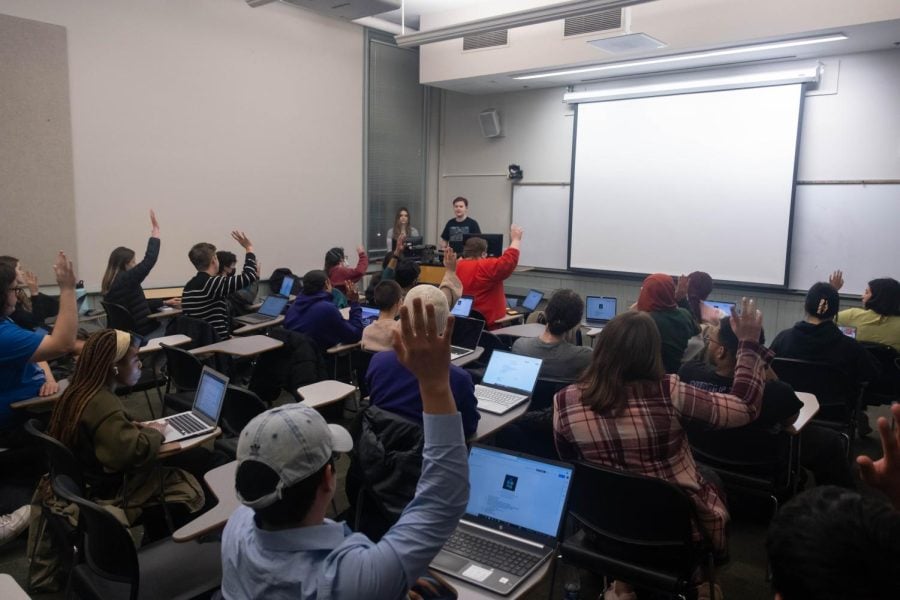ASG Senate passes ranked-choice voting, revises endorsement policies in 2023 Election Commission Guidelines
Daily file photo by Seeger Gray
ASG met to discuss election commission policies Wednesday.
April 27, 2022
The Associated Student Government Senate passed revisions to the 2022 Election Commission Guidelines Wednesday to implement ranked-choice voting and allow executive board members to endorse candidates.
Since the conclusion of this month’s presidential election, the Election Commission has met to discuss election code changes for presentation to the Senate.
The ranked-choice voting system will be used for all positions, Election Commission Chair Jo Scaletty said. Students will rank their preferred candidates and are free to rank as many or as few candidates as they please, Scaletty said.
“The people who are going to win the position should be actually people that the students want them to be,” Scaletty said.
Under ranked-choice voting, a slate will win if it garners a simple majority of votes, so slates earning less than 50% of the vote cannot ultimately win the election. If no one reaches that threshold, Scaletty said the slate with the lowest number of votes will be dropped, and all votes for the dropped candidate will be redistributed to the remaining parties.
If the majority of students cast a vote of no confidence, Scaletty said the election cycle will restart, and new candidates will have the opportunity to campaign.
The Senate also modified the endorsement guidelines for future elections. Previously, outgoing executive board members, with the exception of committee heads, could not endorse candidates running in the upcoming election cycle. Executive members will now have this capability, as long as they do not make endorsements through official ASG platforms.
McCormick Senator and sophomore Marcos Rios said he supported this change because a lack of executive member endorsements could disadvantage the student body.
“The student body doesn’t really understand what the jobs entail, like a president, vice president,” Rios said. “Not having the people who’ve endured the job be able to say anything about it (is difficult.)”
Because a large part of the student body doesn’t closely follow or understand the elections, Weinberg Senator and sophomore Stephanie Shields said she felt concerned giving executive board members endorsement power because it could sway the student body’s opinion too much. She said she could see the student body voting for whoever the former president endorsed.
This concern led ASG members to add an amendment, which allows executive board members to endorse only through personal platforms. This excludes members of the Rules Committee or Election Commission, who cannot endorse in any scenario.
“My only specification is they wouldn’t be able to use any ASG resources to endorse,” Shields said. “(I want to make sure) they wouldn’t be able to use the login on ASG Instagram.”
With the debated amendments, the legislation passed unanimously.
During the meeting, senators also passed proposals related to package center lockers, salad bar meal exchanges, revisions to the Caesar platform and a postal stamp initiative.
Email: [email protected]
Twitter: @joannah_11
Related Stories:
— ASG passes legislation on increasing community college transfers and student job minimum wages
— ASG Evanston Restaurant Week offers student discounts, builds community
— ASG passes resolution to increase MENA student visibility on campus


